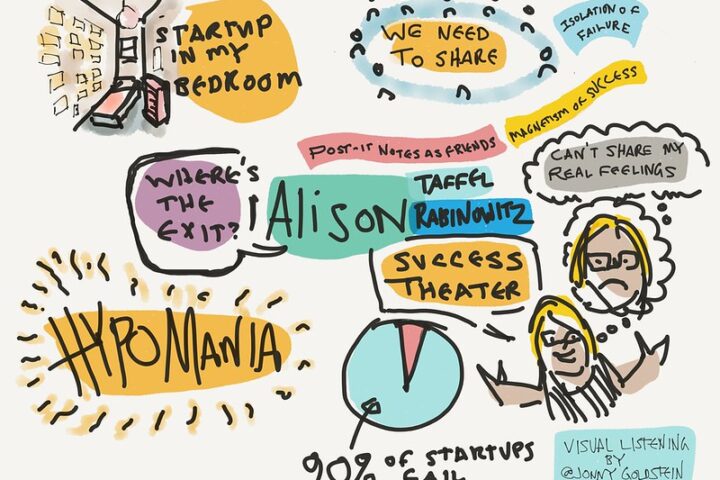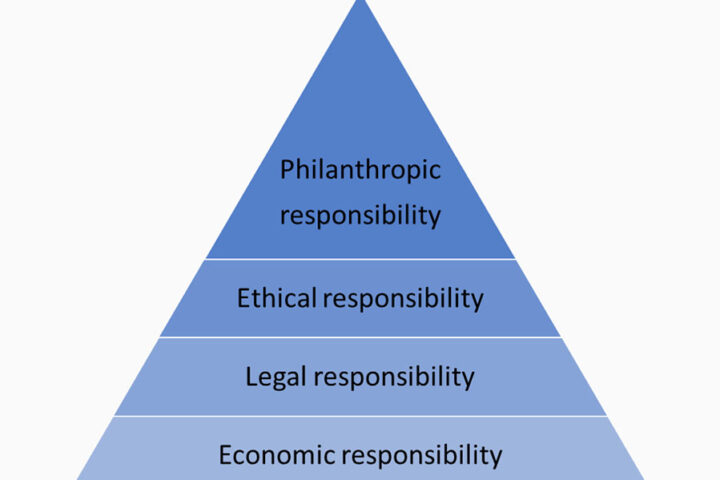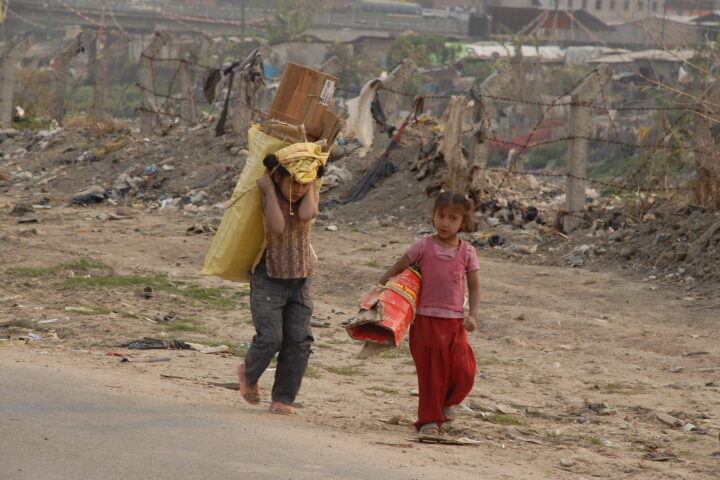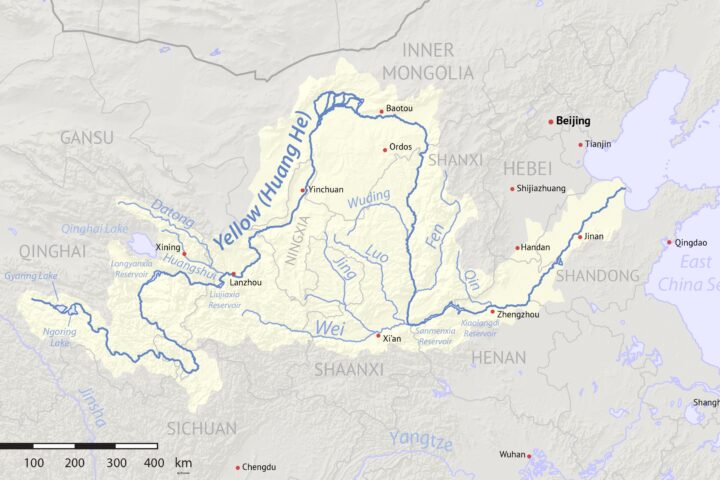Source: warpreventioninitiative_Sub-saharan-migrant-women
Among the many questions anthropologists ask, one is concerned with how the earliest human species spread all over the earth. The theory which comes on top is the replacement model. It states that humans first emerged in Africa and then, slowly migrated out of there. It is the most successful model proposed as of yet because it goes really well with the genetic data gathered by studying existing populations.
If we find this theory to be true sometime in the future, it would mean that humans have always been restless and never stayed at one place for too long. We have always been on the lookout for something new and better. This curiosity is what took us from different nations to different planets!
Even today, thousands of people leave their homes to go somewhere else. The reason may be different for every other person but the effect it has is the same.
Why do people migrate today?
Today, people move out for a number of things. They might shift for better economic opportunities, to join someone else, to escape something, etc. People migrated earlier as well but today more people than ever are living in a country which isn’t their birthplace.
As of 1st July, 2020, it has been estimated that some 281 million people identify themselves as international immigrants. This number has been growing steadily. The growth percentage for the global international immigrant population was 2.3% in 1980, it grew to 2.8% in 2000, and increased to 3.5% in 2020.
A big portion of this number consists of refugees who have migrated somewhere else out of necessity. These are ‘push’ factors. Reasons like economic opportunities are ‘pull’ factors. Push factors make people migrate out of their homes by force while pull factors entice people to come to new destinations.
Pull factors include:
- High income offers from foreign nations
- Easy and cheap transport
- Easier methods of communication like telephone, emails, and the internet
- Labor shortage in foreign nations which creates more job opportunities
- Economic expansion which also triggers employment generation
- Better living conditions and security against issues in the home nation
Push factors which force the people to migrate:
- No employment in the home nation
- Lack of career advancement opportunities
- Restrictive environment and poor persecution of human rights
- War and Internal conflict
- Natural disasters and famine
Importance of the workforce of a country

Source: Image by Gerd Altmann from Pixabay
The workforce of a country is the driving force of its development and progress. As the employment rates increase in a country, more and more people start working towards the common goal of taking their country to better heights.
As the world’s job market evolves, different types of employment opportunities come up. All of these have the potential to drastically improve and boost a country’s economy. The Future of Jobs Report 2023 reports that 23% of jobs are going to change in the upcoming five years. This would be backed by the technological revolution happening currently.
The advancement in digital systems and artificial intelligence is going to bring change in many other job sections too. Both of these have been integrated into almost every other sector. This directly translates to better jobs and more opportunities for the needy.
Effects of migration
As one would have guessed, migration has a deep influence on the way the workforce of a country is shaped. If good people move outside, who will form the crux of this workforce? Let’s discuss it properly.
Several studies have been performed to gauge the effect of migration on the labor market. Different house sets yield different results for the same test. But we will take care to talk about the most common observations made in all these theories.
A popular myth we need to debunk here is that immigration becomes a burden on economics.
Immigration can have two types of impacts on job prospects. Either it increases the unemployment rates by increasing the number of people looking for a job. Or it helps in expanding the job market by increasing the demand for workers. This happens when immigrants purchase goods in their new homes and increase the demand for said goods. In the case of the UK, a report from 2018 mentioned that immigration in their country had done little to change the unemployment or employment rates in the country. They also recorded that people with higher levels of education are the ones who benefit the most in these situations, and that low wage workers are more likely to lose their jobs because of immigration.
Another report has attested to the fact that immigrating to advanced economies can help in increasing both productivity and output. It also helps out poorer countries which benefit when these immigrants send back resources to their families living in these countries.
So, it turns out that immigration to foreign countries does more good than evil- be it for the home nation or for the new home these people shift to.
Resources
- Human evolution – Emergence, Homo Sapiens, Bipedalism | Britannica. (2024). In Encyclopædia Britannica. https://www.britannica.com/science/human-evolution/The-emergence-of-Homo-sapiens
Why do people migrate?
- Why do people migrate? (2015). Embraceni.org. https://www.embraceni.org/migration/why-do-people-migrate/
- Express News Service. (2021, September 17). Why do Indians move abroad? Survey shows 59% do so for career-related reasons. The Indian Express; The Indian Express. https://indianexpress.com/article/cities/pune/why-indians-move-abroad-survey-59-career-related-reasons-7514533/
- Nations, U. (2018). International migration | United Nations. United Nations; United Nations. https://www.un.org/en/global-issues/migration#:~:text=Some%20people%20move%20in%20search,disasters%20or%20other%20environmental%20factors.
Importance of the workforce of a country
- Workforce of the future. (n.d.). https://www.pwc.com/gx/en/services/people-organisation/workforce-of-the-future/workforce-of-the-future-the-competing-forces-shaping-2030-pwc.pdf?src_trk=em66998d0d6e8f03.7190636036234168
- Warwick, S. (2023, September 19). 12 experts explain why the world needs more good jobs. World Economic Forum. https://www.weforum.org/agenda/2023/09/12-experts-explain-world-needs-more-good-jobs-leaders/
Effects of migration
- Migration to Advanced Economies Can Raise Growth. (2020, June 19). IMF. https://www.imf.org/en/Blogs/Articles/2020/06/19/blog-weo-chapter4-migration-to-advanced-economies-can-raise-growth
- Lam, David, and Ahmed Elsayed, ‘The Impact of Migration on Employment Outcomes’, Labour Markets in Low-Income Countries: Challenges and Opportunities (Oxford, 2021; online edn, Oxford Academic, 20 Jan. 2022), https://doi.org/10.1093/oso/9780192897107.003.0005
- The Labour Market Effects of Immigration – Migration Observatory. (2016). Migration Observatory. https://migrationobservatory.ox.ac.uk/resources/briefings/the-labour-market-effects-of-immigration/#:~:text=For%20example%2C%20migrants%20themselves%20buy,more%20labour%2Dintensive%20production%20methods.
- Vézina, S., & Bélanger, A. (2019). Impacts of education and immigration on the size and skills of the future workforce. Demographic Research, 41, 331–366. https://www.jstor.org/stable/26850652

















